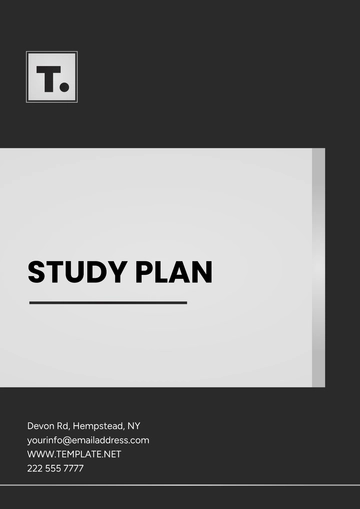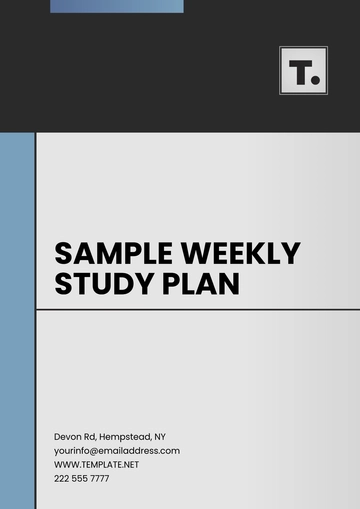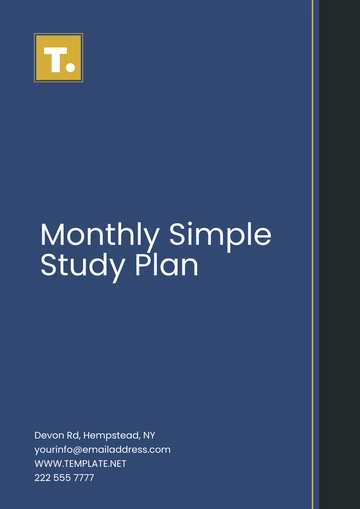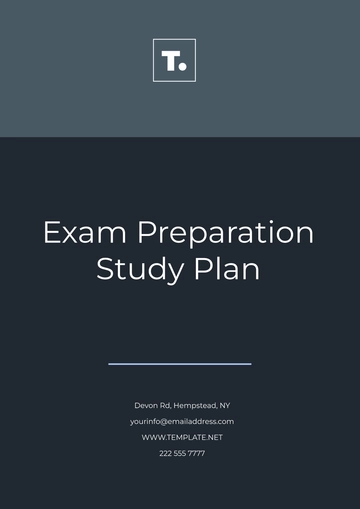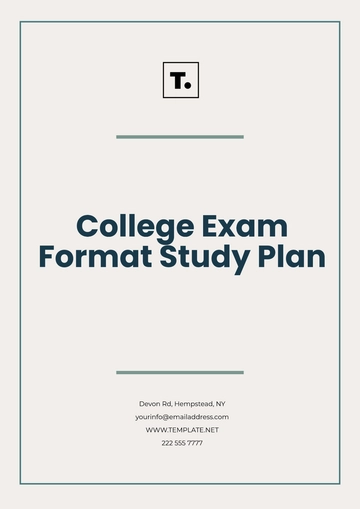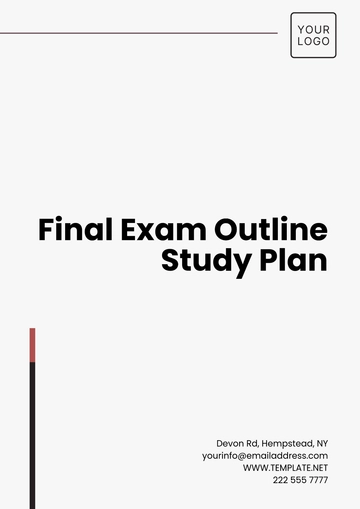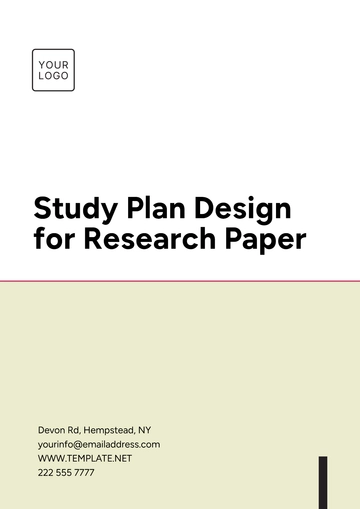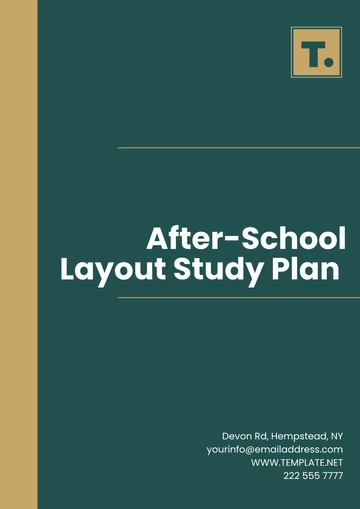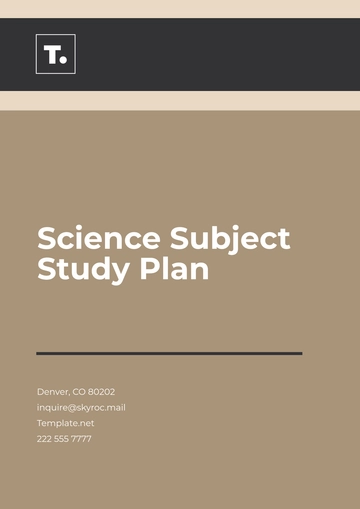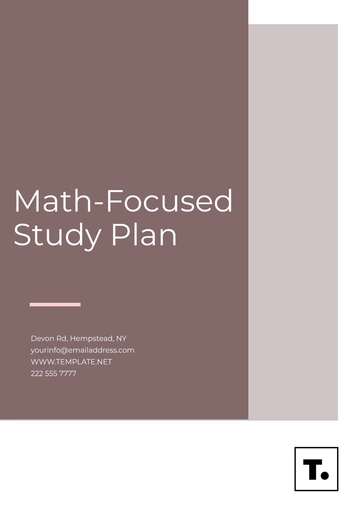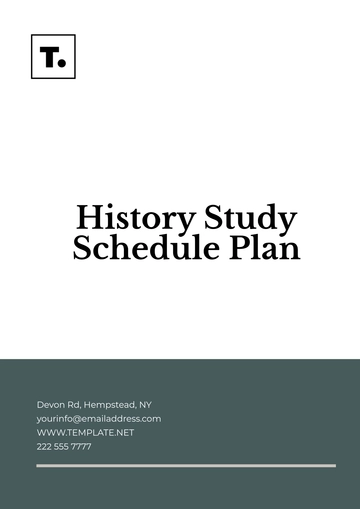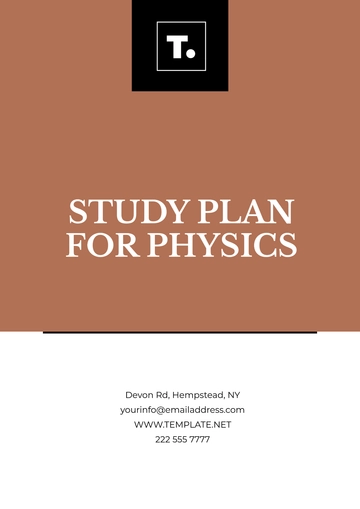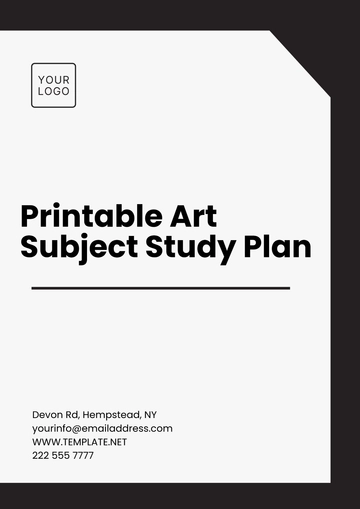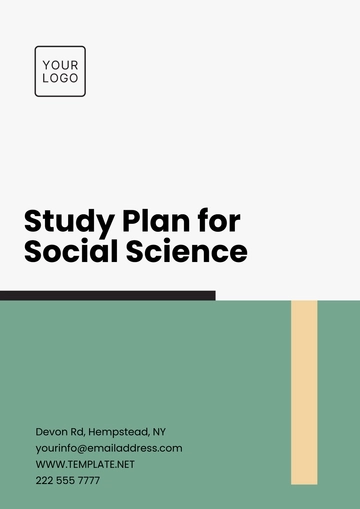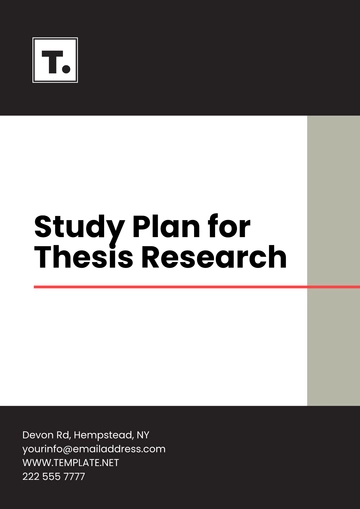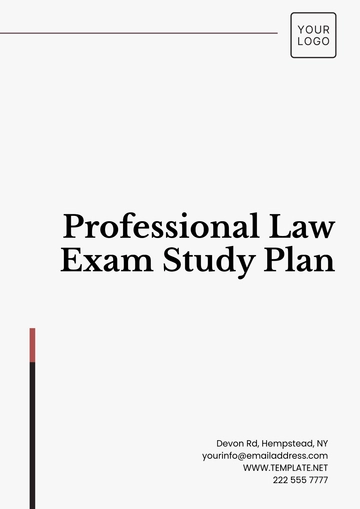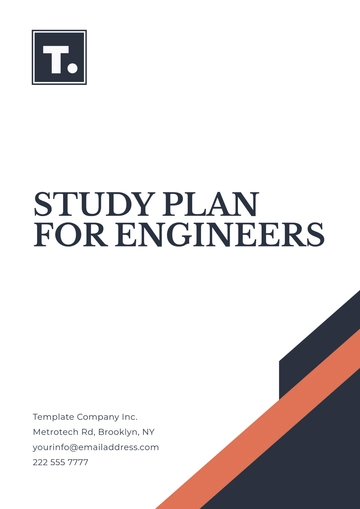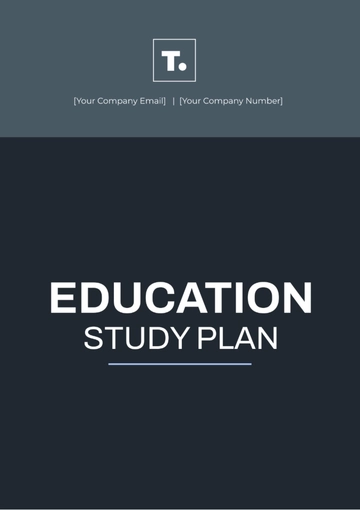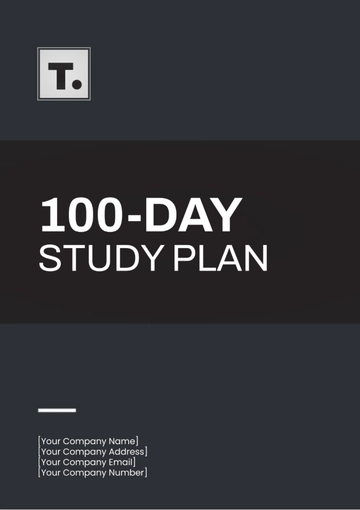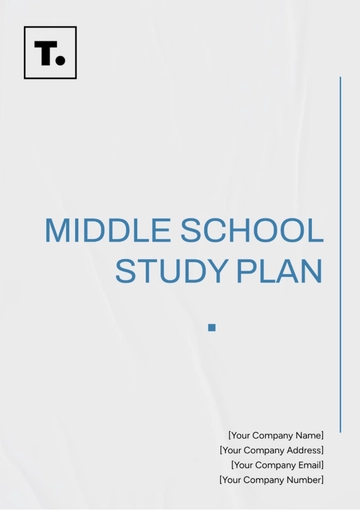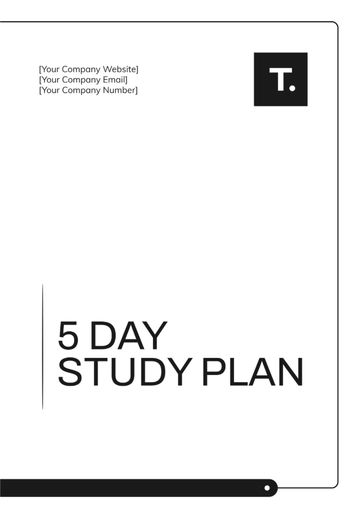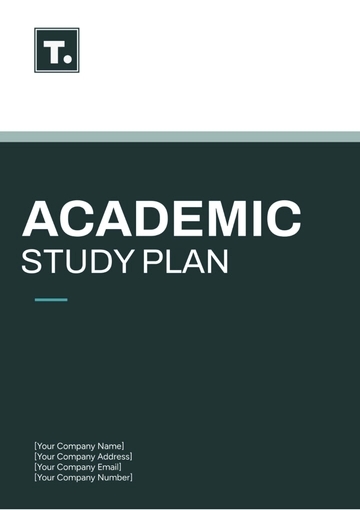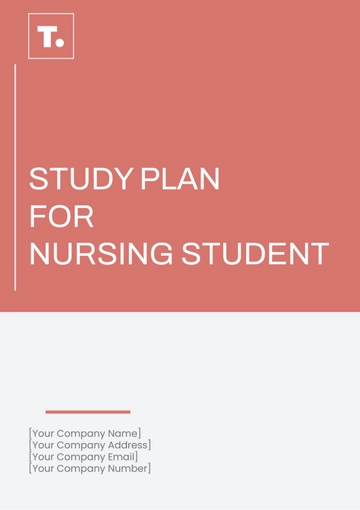Free Education Study Plan
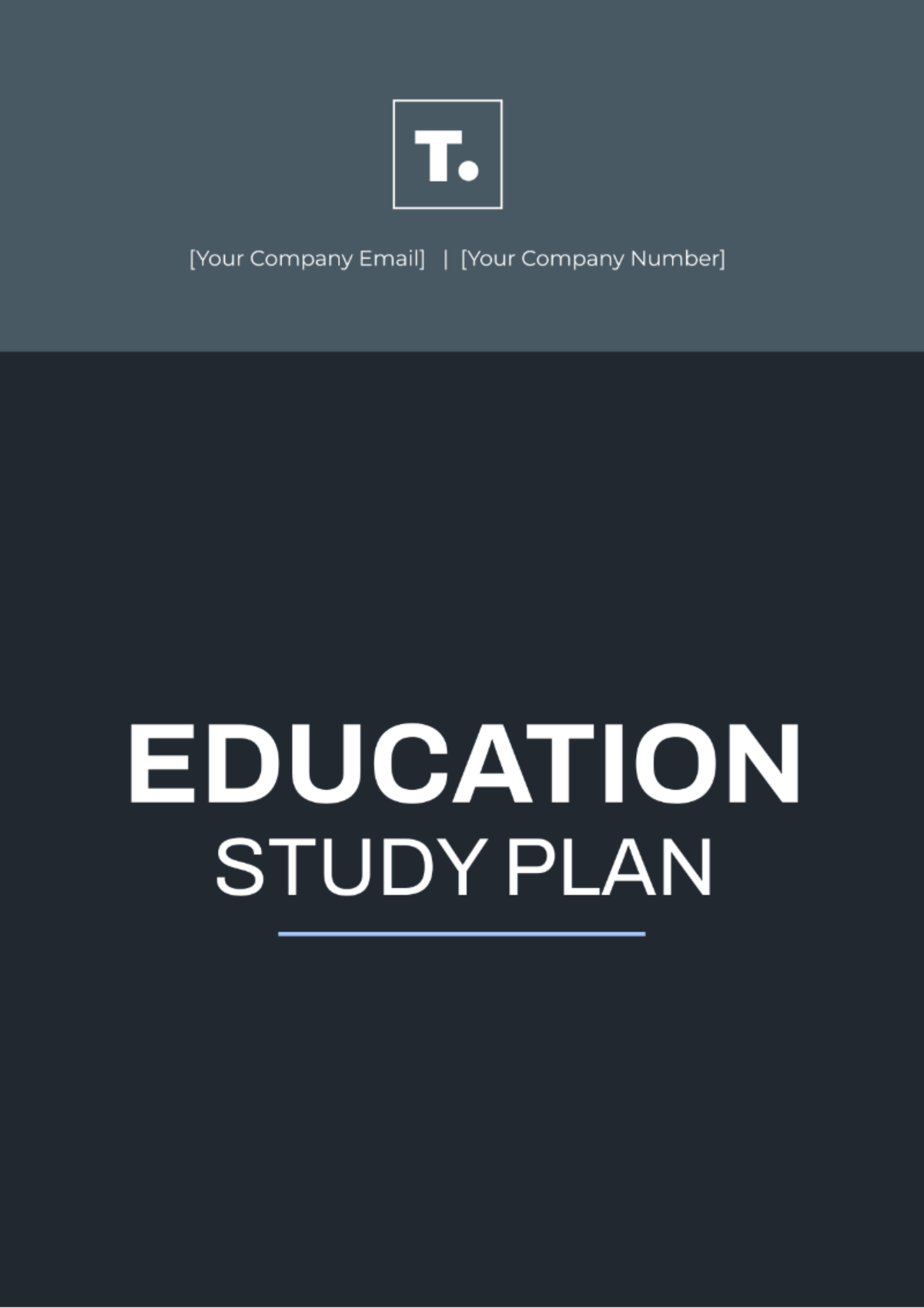
Prepared by: [Your Name]
I. Introduction
A. Purpose
The purpose of this study plan is to provide secondary education students with a structured framework for academic success. It aims to promote clarity, flexibility, balance, and practicality in studying, ensuring that students can effectively manage their academic responsibilities while achieving their educational goals.
B. Objectives
Develop effective study habits
Improve academic performance
Foster a balanced approach to learning and personal well-being
Prepare for standardized tests and future educational endeavors
II. Academic Schedule
A. Weekly Study Schedule
Day | Time | Subject | Location |
|---|---|---|---|
Monday | 9:00 AM - 11:00 AM | Mathematics | Classroom |
1:00 PM - 3:00 PM | Science | Library | |
Tuesday | 10:00 AM - 12:00 PM | English | Classroom |
2:00 PM - 4:00 PM | History | Library | |
Wednesday | 9:00 AM - 11:00 AM | Geography | Classroom |
1:00 PM - 3:00 PM | Foreign Language | Language Lab | |
Thursday | 10:00 AM - 12:00 PM | Art | Art Studio |
2:00 PM - 4:00 PM | Physical Education | Gym | |
Friday | 9:00 AM - 11:00 AM | Music | Music Room |
1:00 PM - 3:00 PM | Elective Course | Classroom |
B. Key Deadlines
Mid-term Exams: [Date]
Final Exams: [Date]
Project Due Dates: [Date]
III. Resources and Study Methods
A. Textbooks and Online Resources
Utilize textbooks recommended by teachers to supplement classroom learning.
Explore online resources such as educational websites, videos, and tutorials to reinforce understanding of key concepts.
B. Study Groups
Form or join study groups with classmates to review material, discuss challenging topics, and quiz each other.
Collaborate on group projects or assignments to share ideas and perspectives.
C. Practice Questions and Exams
Access practice questions and exams from textbooks, study guides, or online platforms to familiarize yourself with the format and content of assessments.
Simulate exam conditions by timing yourself and completing practice exams under test-like conditions.
D. Note-taking Strategies
Experiment with different note-taking methods such as Cornell notes, mind maps, or outlines to find what works best for you.
Review and revise your notes regularly to reinforce learning and clarify any misunderstandings.
IV. Monitoring Progress
A. Weekly Reflection
Reflect on achievements, challenges, and areas for improvement at the end of each week.
Adjust study strategies and schedules as needed based on reflection.
B. Goal Setting
Set specific, measurable goals for each subject or academic endeavor.
Track progress towards goals and celebrate successes along the way.
C. Feedback
Seek feedback from teachers, peers, and parents to identify strengths and areas for growth.
Use feedback to inform study strategies and academic decisions.
V. Conclusion
By following this secondary education study plan with dedication and diligence, students can achieve academic success while maintaining balance and well-being. Remember to stay flexible, adapt as needed, and prioritize both academic and personal growth.
- 100% Customizable, free editor
- Access 1 Million+ Templates, photo’s & graphics
- Download or share as a template
- Click and replace photos, graphics, text, backgrounds
- Resize, crop, AI write & more
- Access advanced editor
Achieve your educational objectives with the Education Study Plan Template offered by Template.net. This versatile, customizable, and downloadable template is ideal for students of all levels. Plan your academic activities and goals with ease, and make necessary adjustments using our AI Editor Tool. Print your personalized study plan and stay organized throughout your educational journey.
